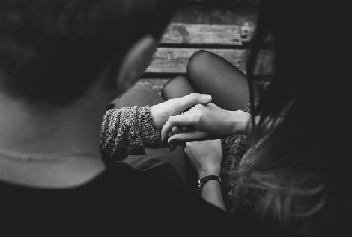
How to Heal a Relationship Affected by Addiction
Going through addiction is one of the toughest tests for a relationship to endure. Unlike other illnesses, addiction affects everyone around a person, especially those they are closest to. If you suspect your partner may be abusing substances, or if one of you is going through recovery, you may not know how to navigate this tough time in your relationship to heal as a couple.
Getting treatment
The first step to healing your relationship when one partner is abusing substances is to identify the problem and help them get treatment. Identifying addiction can be tricky in intimate relationships because you may have become accustomed to things they do that could be warning signs of addiction. People who are addicted often try to hide it from their intimate partner, either out of fear or shame.
If you’re concerned that your partner may be addicted, there are some physical signs you can look out for, such as nausea, drowsiness and constricted pupils. Other warning signs to be aware of are sudden unexplained financial issues, extra pill bottles in the garbage, or noticing your partner is taking more than the prescribed dosage of a medication.
If you recognize any of these signs, helping your partner get into treatment is crucial, although knowing how to take that next step can be a challenge. Newer research suggests that rather than being confrontational, approaching your partner about your concerns more gently may make them more receptive to what you are saying. This approach is based on a therapy model called CRAFT, or Community Reinforcement and Family Training. By truly listening to your partner and being supportive, you are giving them greater motivation to seek help.
Healing as a couple
- While your partner who is battling addiction needs to be committed to treatment and recovery, you need to make sure you care for yourself. Your partner needs your support, but you must also put your needs first and not lose yourself in their recovery process. You will only be able to heal as a couple if you are each healing yourselves.
- Both partners need to accept that your relationship has changed and the way you relate to one another will be different. Even though your partner in recovery is going through a tough time, you should set boundaries for how you interact and don’t allow them to take their frustration out on you.
- Both partners need to be willing to address any consequences to your relationship that have come from the addiction, as well as underlying issues that may need to be resolved. If your partner has been unfaithful, you must both try to understand the factors that can lead to infidelity with addiction and the ways you can work on repairing the damage. And as one contributor to Refinery29 explains, there can also be factors in your home environment that you both need to work on to deal with tension that may still persist in your relationship.
- Understand that repairing your relationship will take time. Psychology Today suggests realizing that actions speak louder than words, but also understand that it takes time seeing your partner stay consistent with rebuilding their life and your relationship in order to really see change. You must both remain committed to giving your relationship the ongoing work needed to move forward.
Knowing when to move on
There isn’t a single solution to healing a relationship after addiction, and the way forward isn’t always clear. Working on a relationship requires both people to commit to repairing the damage, and if one or both of you find that you can no longer do that, separation may be the best option. No one can make that decision for you, but consulting a therapist may help you see things more clearly.
Healing a relationship through addiction must start with being committed to treatment and recovery. Once you have this foundation, it will take time and hard work. Not every couple can or should stay together through addiction, but as long as you remain honest with each other and are willing to work through your problems, it is possible to heal and move forward.
Caleb Anderson
Co-created RecoveryHope to help people with substance abuse disorders and their families.

Photo credit: Pexels


Ostrich Syndrome | Keeping Marriage Alive Initiative
April 6, 2020[…] near divorce which became a wakeup call for us; confirming that the Ostrich syndrome never works in relationships especially […]
Anger can destroy your marriage! | Keeping Marriage Alive Initiative
August 21, 2020[…] Dealing with anger or addiction? This blog is a must read too – https://www.keepingmarriagealive.com/how-to-heal-a-relationship-affected-by-addiction/ […]